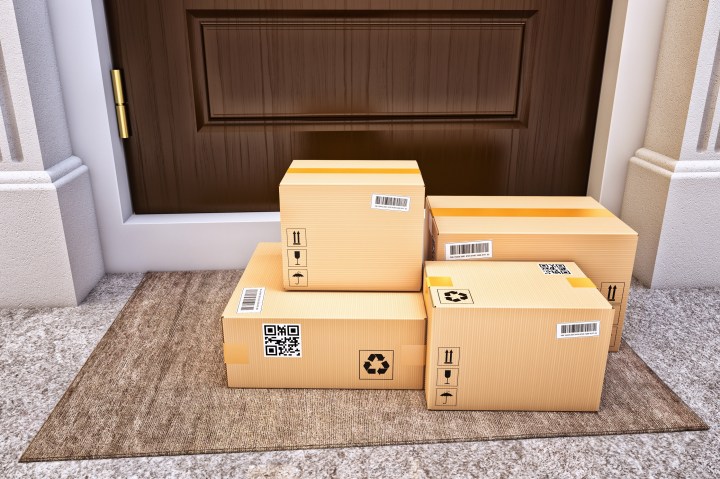
What is the economic impact of lost and stolen packages?

This is just one of the stories from our “I’ve Always Wondered” series, where we tackle all of your questions about the world of business, no matter how big or small. Ever wondered if recycling is worth it? Or how store brands stack up against name brands? Check out more from the series here.
Listener and reader Miranda Paley from Washington, D.C., asks:
What’s the economic impact of lost and stolen packages? I just had a present stolen off my porch and the company Allbirds very kindly shipped a replacement pair of kicks overnight so I can give them to my husband on time.
Customers who order online often experience package theft or never see these packages arrive, which adds up to billions of dollars in losses across the economy.
An estimated 119 million packages were stolen over the past year, amounting to $6 billion worth of losses, according to the home-safety product review site SafeWise.
SafeWise said that more than half of all stolen packages were delivered by Amazon.
The cost of lost or stolen packages do end up being factored into the price of a product, explained Steve Tadelis, an economics professor at the University of California, Berkeley.
“Imagine a company that is just barely making everything work, so they could pay all their employees, pay the salaries and bonuses and the cost of operation. And now suddenly, there’s going to be a slight increase in theft,” Tadelis said. “In order to remain a viable business, they would have to find some way to compensate for that loss, which naturally would be slightly higher prices to their consumers.”
Companies have typically been very generous with their policies regarding lost or stolen packages, ensuring that they’ll replace it for the customer, explained Santiago Gallino, an associate professor of operations, information and decisions at the University of Pennsylvania’s Wharton School. One metric retailers use is the customer’s lifetime value
“So for every customer, they know how much profit they’re going to make in the long run. And some of these transactions that are a clear loss are seen as part of the long-term relationship with the customer,” Gallino said. “They’re willing to take the individual hit on one transaction, because they know that in the long run, the relationship with that customer is going to be positive.”
Gallino said companies are aware if they audit lost or stolen reports too much, the customer will feel like they’re on the hook if a product gets stolen or if they need to return it
“And that could be a reason not to buy online,” he explained.
But retailers are still concerned that some customers will not be entirely transparent about lost or stolen packages, along with increased crime rates in some areas.
Lost, stolen and returned packages are probably the biggest pain points for online retailers, Gallino said.
That’s why retailers have been trying to find ways to mitigate the issue by being more proactive in the tracking process, he said.
Gallino said ecommerce companies might announce the delivery times and have the delivery driver take a picture of the package as proof that it arrived. Amazon specifically encourages the use of its lockers, which allow customers to pick up their packages at a designated location.
Gallino noted that it’s more of a hassle to the customer, but it makes the delivery process more secure and reliable.
As technology has become more sophisticated, some online retailers are also keeping track of customers they deem suspicious if they’re constantly making reports about lost or stolen packages, he said.
“In that sense, you can think of a company firing those customers, regardless of whether it’s their fault or not,” he said. “Selling to a customer that loses a package every other week is probably too expensive.”
In cases where a customer makes too many complaints, a company like Amazon might stop that customer from shopping with them by closing their account, meaning they will no longer be able to access it.
“You won’t be able to access your order history or print a proof of purchase or an invoice,” explains an FAQ on Amazon’s website.
Companies are always trying to balance satisfying their customers, while protecting their bottom line.
There’s a lot happening in the world. Through it all, Marketplace is here for you.
You rely on Marketplace to break down the world’s events and tell you how it affects you in a fact-based, approachable way. We rely on your financial support to keep making that possible.
Your donation today powers the independent journalism that you rely on. For just $5/month, you can help sustain Marketplace so we can keep reporting on the things that matter to you.


















